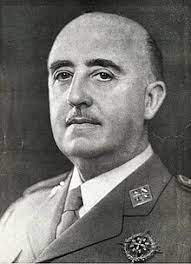Eps 2172: Francisco Franco
— The too lazy to register an account podcast
In the podcast titled "Francisco Franco," the host discusses the life and rule of the Spanish dictator. Francisco Franco was born in 1892 and rose to power during the Spanish Civil War in the 1930s. He led the Nationalist forces against the Republican government and emerged as the winner in 1939, establishing a fascist regime that lasted until his death in 1975. During his rule, Franco implemented a series of oppressive policies and exercised strict control over the country. He abolished regional autonomy, suppressed political opposition, and censored the media. The regime's ideology was deeply rooted in Catholic conservatism, with the Catholic Church being a key ally and influential institution. Franco's dictatorship was marked by economic struggles and isolation from the international community. Spain experienced a lack of economic growth, as the country was isolated by trade embargoes and faced internal strife due to repression and lack of political freedoms. The podcast highlights that Franco's regime was responsible for numerous human rights violations, including political repression, torture, and execution of dissidents. Thousands of people were imprisoned during his rule, and many families faced persecution and exile. The memory of these atrocities continues to divide Spanish society today. The host also discusses the death of Franco and the ensuing transition to democracy. After Franco's death, Spain embarked on a process of democratic reform that led to the drafting of a new constitution in 1978. This marked the end of Franco's dictatorship and the beginning of a democratic era in Spain. Overall, the podcast provides a comprehensive overview of Francisco Franco's life, his dictatorial regime, and the lasting impact it had on Spain.
| Seed data: | Link 1 |
|---|---|
| Host image: | StyleGAN neural net |
| Content creation: | GPT-3.5, |
Host

Sean Brown
Podcast Content
Introduction:
Welcome to our podcast today, where we dive into the intricate and controversial life of Francisco Franco, the authoritarian leader who governed Spain for nearly four decades. In this episode, we will explore the rise to power, key events during his dictatorship, and the lasting impact Franco left on Spain's social, political, and cultural landscape. Join us as we unravel the layers of one of the most influential figures in Spanish history.
Paragraph 1: The Early Years and Rise to Power
Francisco Franco was born on December 4, 1892, in Ferrol, a coastal town in the northwestern region of Galicia, Spain. Raised in a devout Catholic family, Franco showed early ambition and military talent. He joined the Spanish Army at the age of 14 and quickly rose through the ranks. Franco's rise to power came during a tumultuous period in Spain's history, known as the Spanish Civil War (1936-1939). Leading the Nationalist faction, Franco ultimately emerged victorious, effectively putting an end to the Second Spanish Republic and establishing a fascist regime.
Paragraph 2: The Dictatorship and Repression
Franco's regime, known as the Francoist dictatorship, lasted until his death in 1975. During this period, Spain was characterized by political repression, censorship, and the suppression of civil liberties. Franco's regime relied heavily on the support of the military, the Roman Catholic Church, and Falangist elements. Many democratic institutions were abolished, and harsh punishments were imposed on political opponents. Under Franco's rule, thousands of people were imprisoned, executed, or simply disappeared for their perceived opposition to the regime.
Paragraph 3: Economic Policy and Isolation
Franco's economic policy, often referred to as autarky, aimed at creating self-sufficiency to shield Spain from external influences. This policy favored autarkic industries and discouraged foreign investments. While initially successful in stabilizing the economy, it ultimately resulted in isolation and hindered Spain's development compared to its European counterparts. The regime's economic policies limited potential technological advancements and innovation, leaving Spain lagging behind economically.
Paragraph 4: Women and Society under Franco
Women's roles in Francoist Spain were heavily circumscribed by traditional and conservative values. The regime promoted a patriarchal society that emphasized women's primary role as wives and mothers, while suppressing feminist movements. Civil rights and freedoms for women were systematically curtailed, prohibiting them from holding certain positions and restricting their access to education. It was not until after Franco's death that significant progress was made in promoting gender equality in Spain.
Paragraph 5: Legacy and Transition to Democracy
Franco's death in 1975 marked the beginning of the transition to democracy in Spain. The country embarked on a process of political reform, culminating in the establishment of a constitutional monarchy. Many aspects of Franco's regime were dismantled, and a focus on human rights, civil liberties, and democratic values took root. However, Franco's legacy remains controversial. Some argue that he modernized Spain and preserved its unity, while others decry the human rights abuses and repression during his regime.
Conclusion:
In this podcast episode, we have explored the life and times of Francisco Franco, shedding light on one of the most influential figures in Spanish history. We have examined his rise to power, the repression under his authoritarian regime, the economic policies of his era, the impact on women's rights and society, and finally, his complicated legacy and the subsequent transition to democracy in Spain. The Francoist era continues to shape Spain's socio-political landscape, serving as a reminder of the fragility and resilience of democracy.
Thank you for joining us on this journey through the life and impact of Francisco Franco. Tune in to our future podcasts as we continue to explore intriguing topics that provide insight into the defining moments of history.
